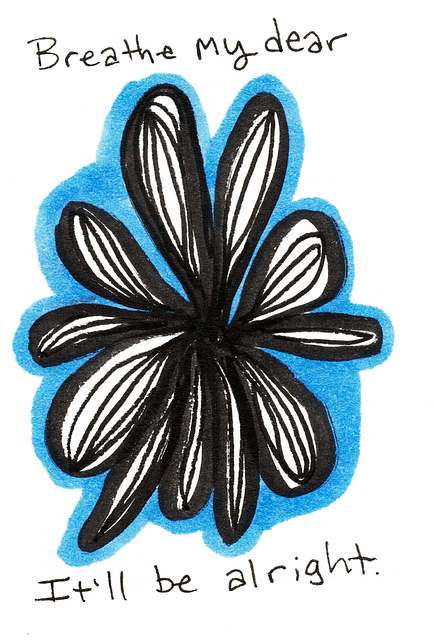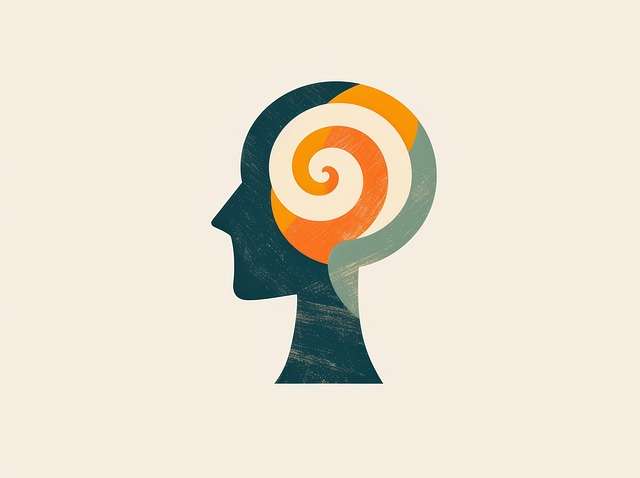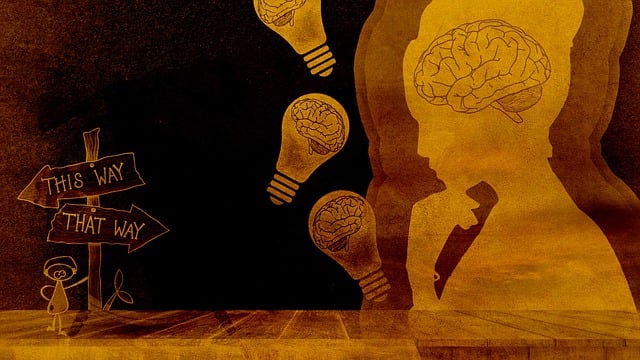Wheat Ridge Chronic Pain Therapy emphasizes the link between chronic pain and mental health, integrating education to address psychological impacts. Their program includes stress management workshops, resilience training, and interactive learning methods for effective mental health support. They focus on risk management planning, empowering patients with coping tools and fostering community through open dialogue. This comprehensive approach aims to improve anxiety relief and quality of life, reflecting their commitment to excellence in Wheat Ridge Chronic Pain Therapy.
“Unveiling holistic care, this article explores the intricate process of designing mental health education programs, with a specific focus on chronic pain management at Wheat Ridge Chronic Pain Therapy. By understanding the context of mental health and chronic pain, we identify essential components for effective learning. We then delve into creating engaging, interactive experiences and implementation strategies to ensure sustainable impact. Through these strategies, healthcare professionals can empower individuals to navigate their mental health journeys alongside chronic pain.”
- Understanding Mental Health Within the Context of Chronic Pain
- Essential Components for Effective Education Programs
- Designing Engaging and Interactive Learning Experiences
- Implementation Strategies for Sustainable Impact at Wheat Ridge Chronic Pain Therapy
Understanding Mental Health Within the Context of Chronic Pain

Mental health is often overlooked when addressing chronic pain management, yet it is an integral part of overall well-being. Wheat Ridge Chronic Pain Therapy recognizes this connection and integrates mental health education into their programs. Understanding the psychological impact of chronic pain is essential for both patients and healthcare providers. Many individuals living with chronic pain experience anxiety, depression, or other mental health challenges due to the constant physical discomfort and its impact on daily life.
This interrelation underscores the need for comprehensive treatment approaches. Mental health professionals play a crucial role in supporting patients by implementing risk management planning tailored to their needs. Strategies such as empathy building can enhance patient-therapist relationships, fostering an environment where individuals feel safe to express their emotions and concerns openly. Thus, integrating mental health education equips both patients and professionals with tools to navigate the complex relationship between chronic pain and psychological well-being, ultimately aiming for improved Anxiety Relief and overall quality of life.
Essential Components for Effective Education Programs

An effective mental health education program should incorporate several key components to ensure its success and positive impact on participants’ well-being. Firstly, it is essential to offer comprehensive stress management workshops that teach practical strategies for coping with everyday pressures. These sessions can empower individuals to manage their stress levels effectively, fostering a sense of control over their mental health. Incorporating techniques like mindfulness, relaxation exercises, and cognitive behavioral therapy (CBT) methods can provide valuable tools for long-term stress reduction, as demonstrated by various research studies in the field of Wheat Ridge Chronic Pain Therapy.
Additionally, programs should focus on inner strength development by encouraging participants to explore their resilience and emotional agility. This aspect may involve teaching conflict resolution techniques to help individuals navigate challenging interactions with others. By learning to de-escalate conflicts and communicate effectively, participants can enhance their overall well-being and build healthier relationships, which is especially beneficial in today’s fast-paced world. Such skills not only contribute to personal growth but also enable individuals to better manage mental health challenges, including stress-related disorders.
Designing Engaging and Interactive Learning Experiences

Designing engaging and interactive learning experiences is paramount when creating a mental health education program, especially considering the sensitive nature of the topic. At Wheat Ridge Chronic Pain Therapy, we’ve found that combining various teaching methodologies can significantly enhance participant engagement and knowledge retention. Incorporating hands-on activities, group discussions, and multimedia resources allows for diverse learning styles to be addressed. For instance, Mental Wellness Journaling Exercises can provide individuals with a private space to reflect on their experiences while Public Awareness Campaigns Development facilitates collective understanding of mental health issues in society.
Interactive elements such as role-playing scenarios and virtual reality simulations offer unique, immersive experiences that can make abstract concepts more tangible. Moreover, integrating Self-Care Practices within the curriculum not only empowers individuals to take charge of their well-being but also fosters a sense of community through shared learning. These engaging approaches ensure that participants remain active participants in their education, ultimately leading to deeper comprehension and positive behavior change.
Implementation Strategies for Sustainable Impact at Wheat Ridge Chronic Pain Therapy

At Wheat Ridge Chronic Pain Therapy, implementing sustainable mental health education programs requires a multi-faceted approach. The first step involves Risk Management Planning for Mental Health Professionals, ensuring practitioners are equipped to handle complex patient scenarios with empathy and evidence-based techniques. This includes training in recognizing and managing conditions like anxiety, which often co-occur with chronic pain, using Mind Over Matter Principles to empower patients with coping strategies.
Interactive workshops, peer support groups, and regular refresher courses are key implementation strategies. These methods foster a sense of community among patients and therapists, encouraging open dialogue about mental health challenges. By integrating these practices into the fabric of Wheat Ridge Chronic Pain Therapy, the program aims to achieve long-lasting positive outcomes for both individuals and the broader therapeutic ecosystem.
Mental health education programs, such as those implemented at Wheat Ridge Chronic Pain Therapy, play a pivotal role in empowering individuals with knowledge and skills to manage their chronic pain and mental well-being. By combining insights from understanding mental health in the context of chronic pain, incorporating essential components for effectiveness, and designing engaging learning experiences, these programs can yield significant and sustainable impacts. This holistic approach not only enhances the therapeutic journey but also fosters a supportive environment that promotes resilience and improved quality of life for those navigating chronic pain.














